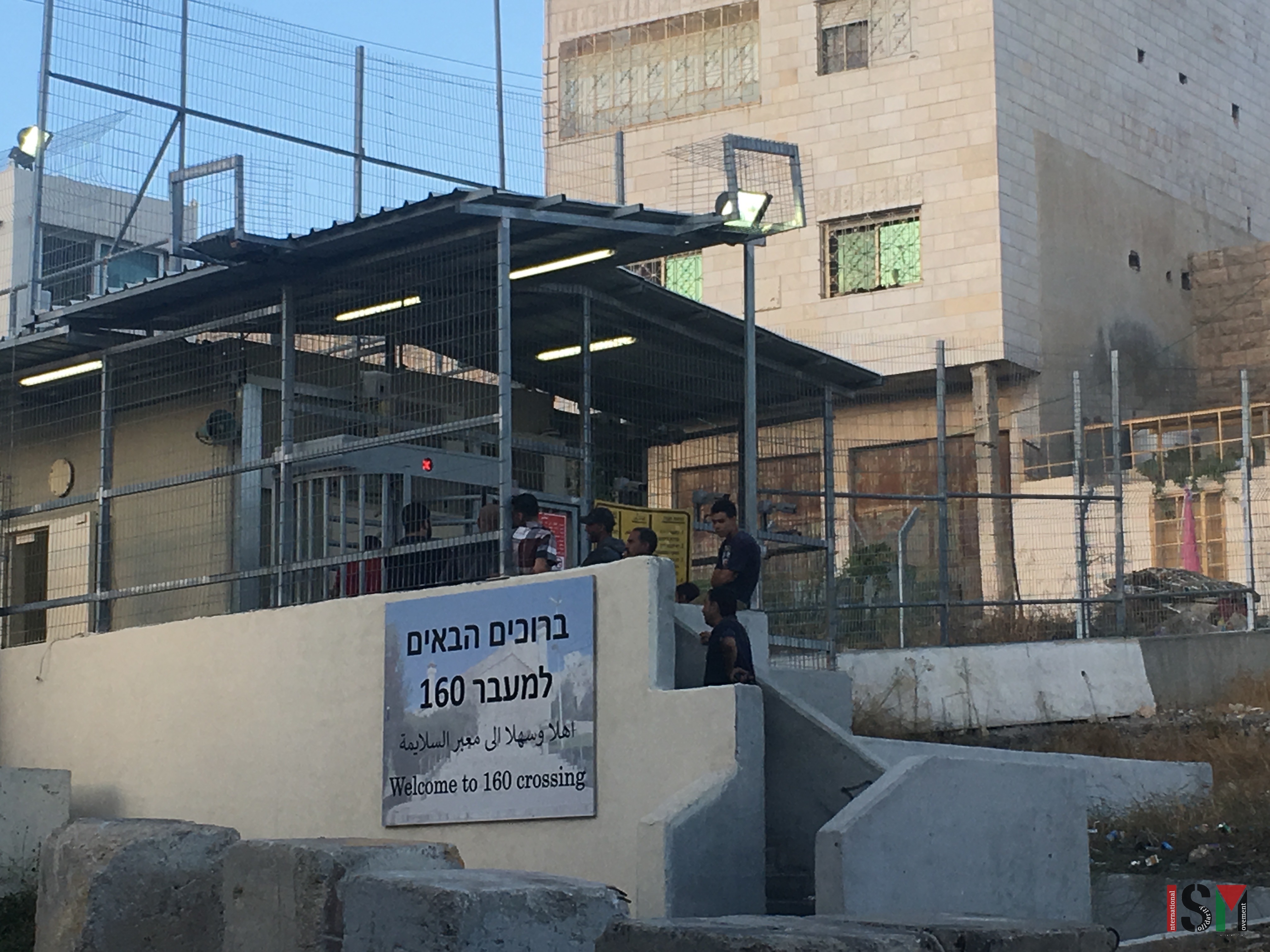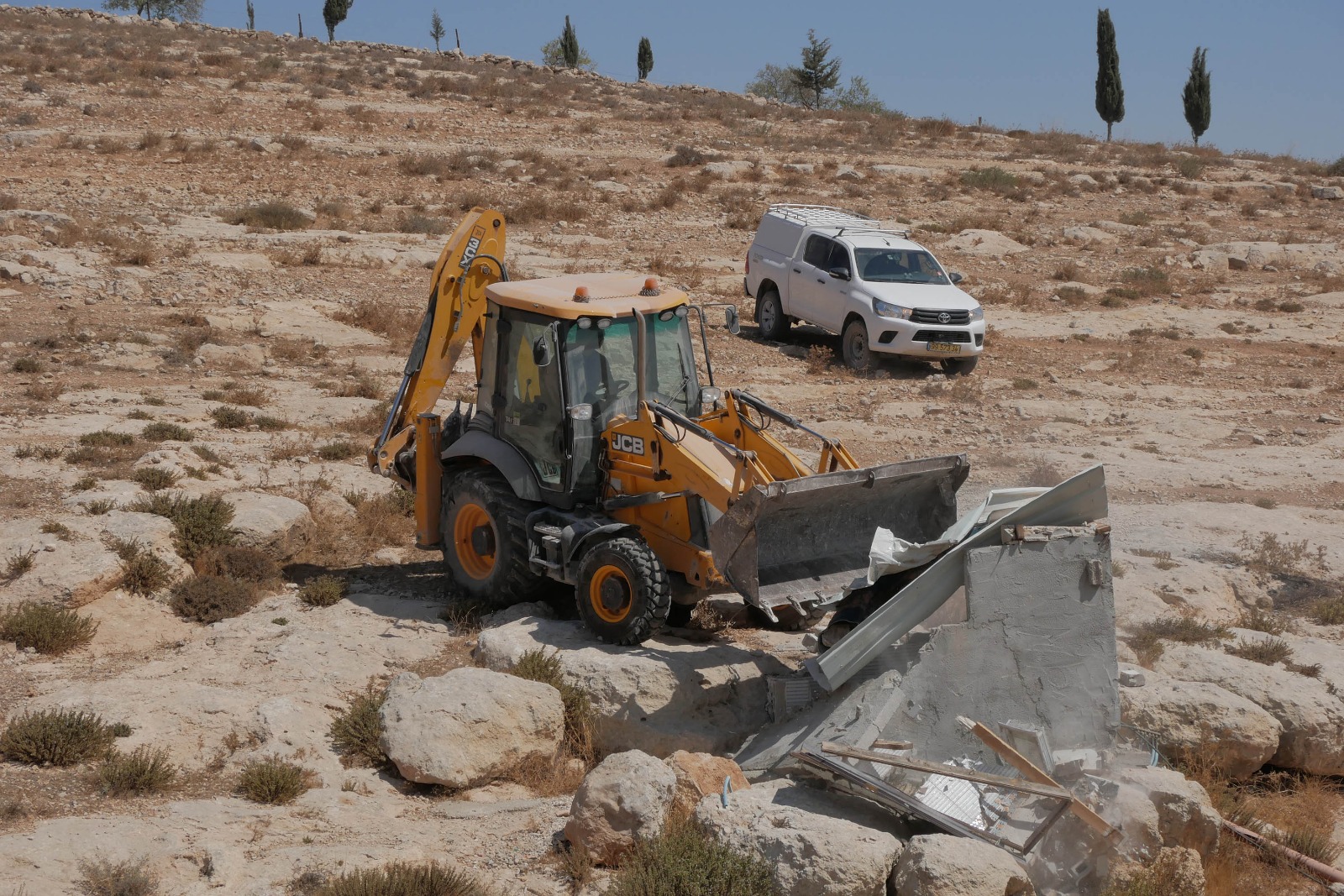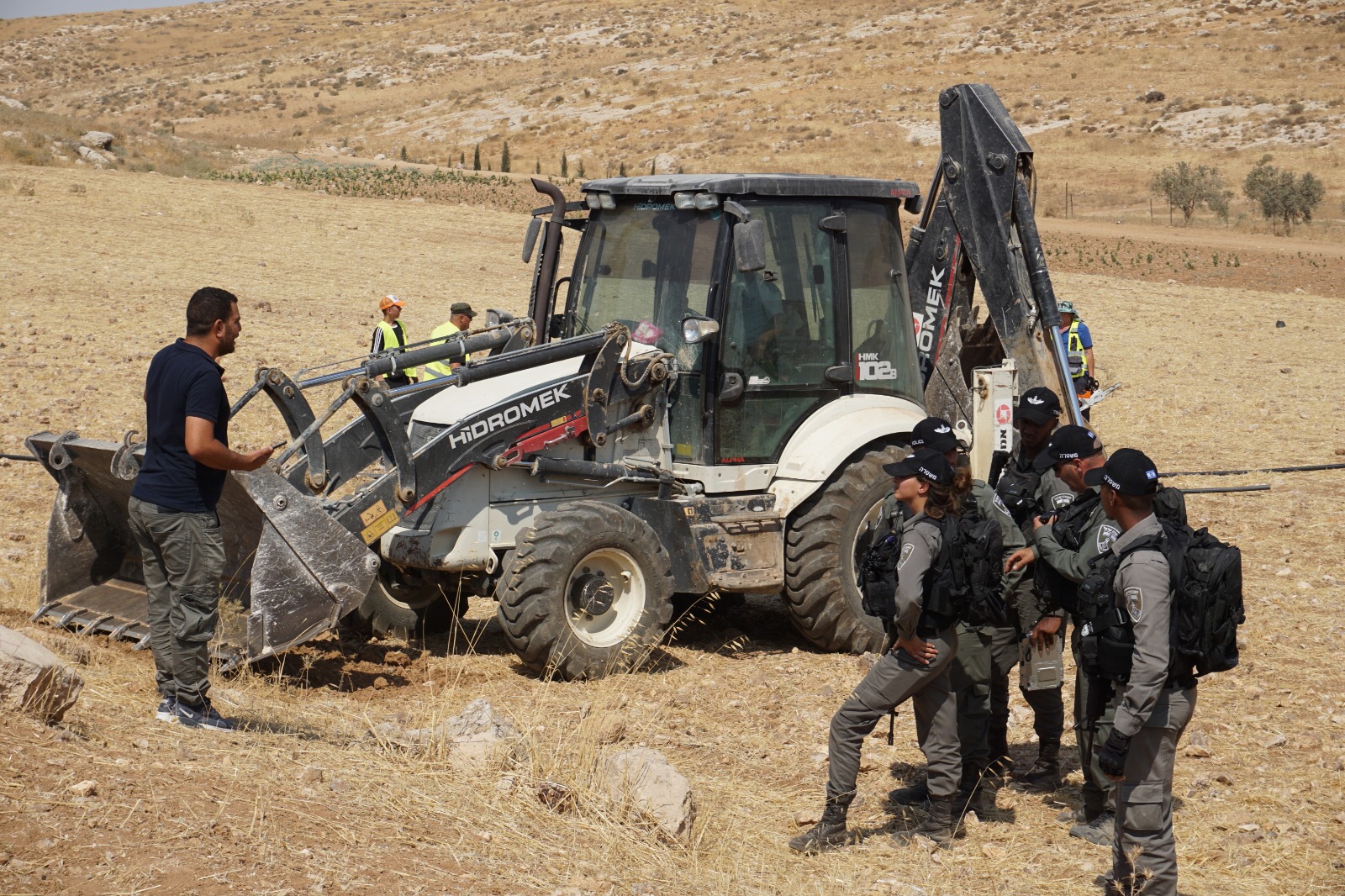Tag: Settlers
-
Waiting at a checkpoint
An ISM activist writes about her experiences volunteering in Hebron (Al Khalil) during Netanyahu’s visit to the city.
-
Statement on “postponement” of Regavim London talk due to activist pressure
Yesterday, UK Lawyers for Israel (UKLFI) announced the “postponement” of a talk by extremist pro-settler group Regavim in London due to opposition from British, Israeli, and Palestinian activists. Regavim, which receives funding from the Israeli government, is not only anti-Palestinian and openly racist, but also lobbies for the ethnic cleansing of Palestinians from the West…



